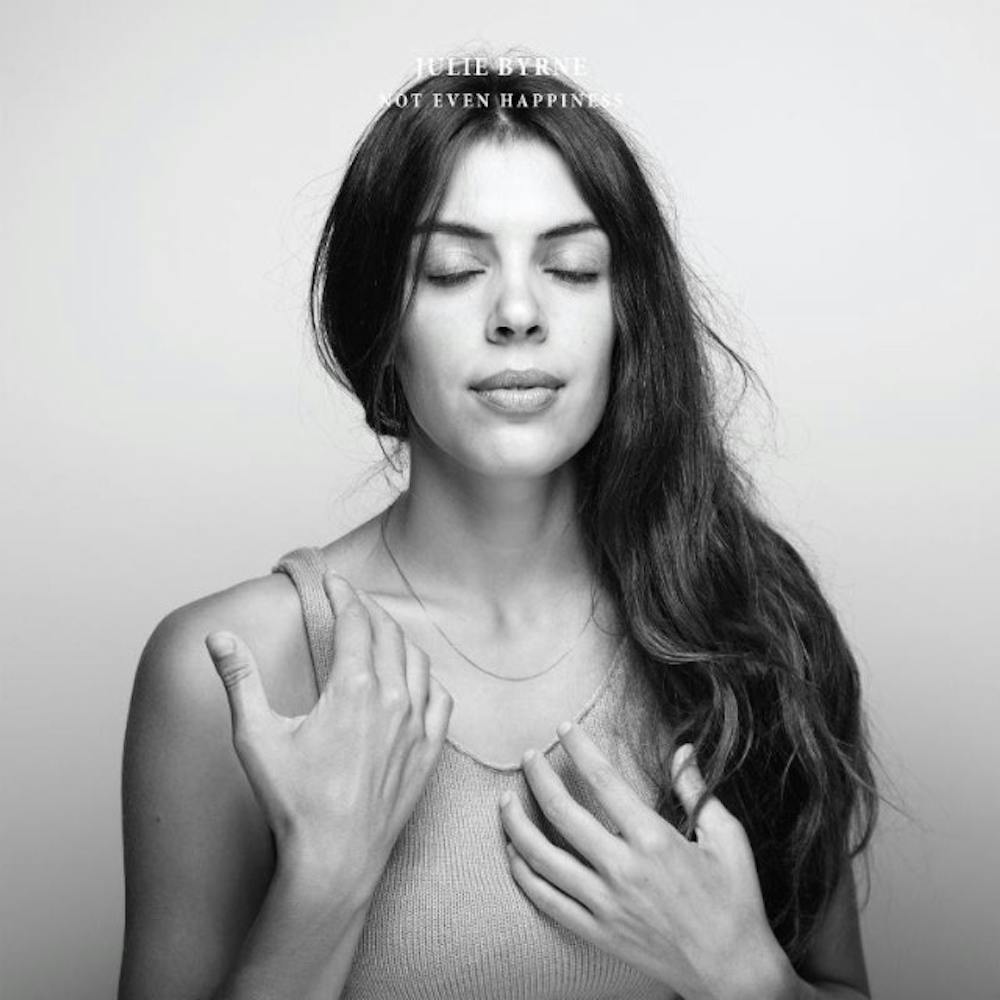“Not Even Happiness,” Julie Byrne’s second album, presents the artist’s sound as a blend of Enya, Bon Iver and Annie Lennox. Byrne’s ethereal and surprisingly low voice has a lulling effect on listeners. As with any work that is buttery-smooth and easy on the ears, it can be difficult to distinguish between songs. Yet this occasional lack of clarity among melodic lines ends up being one of Byrne’s strengths — she does not ask listeners to focus terribly hard on her lyrics.
On the cover of “Not Even Happiness,” the artist appears in a contemplative state. Her eyes are closed and her hands have floated to her chest, as if she is breathing deeply. Byrne combines soothing “oohs” and orchestral backgrounds to give listeners the same release in their minds and bodies.
“Morning Dove” is a standout of the album that opens with Bon Iver-esque guitar chords and showcases the accessibility of Byrne’s work. She is most likely describing a lover in this track, but her lyrics could be applied to loss itself — of a family member, a friend or even a feeling.
While it initially seems Byrne should have started the album with one of the catchier songs — like “Natural Blue” or “Morning Dove” — the album feels complete and cyclical when listened to from start to finish. The first few songs are slow, quiet and reserved. They form a sleepy, nighttime soundtrack, while the middle and later half of the album work their way towards sunrise and a more guitar-focused morning.
Most of the album’s songs include references to forest or marine landscapes. They would fit in well on a winter playlist, providing the perfect background music for a snowy walk or a warm bonfire. Byrne is certainly not a peppy or forceful artist, but her gentleness and ease allow her to reach audiences as fully as more high-spirited singers.
“Not Even Happiness” became available on some platforms Jan. 13, and will have a wider release Jan. 27.





